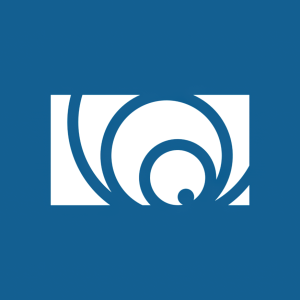Vistagen Announces Positive Results from Exploratory Phase 2A Study of PH284 in Cancer Cachexia
PH284 nasal spray demonstrated improvements to subjective feelings of hunger in cancer patients
PH284 is the fifth pherine product candidate in Vistagen’s neuroscience pipeline with a positive efficacy signal
“We are highly encouraged by the potential of PH284 to improve the quality of life for those challenged by the debilitating impacts of cancer cachexia,” stated Shawn Singh, President and Chief Executive Officer of Vistagen. “Loss of appetite from cancer and other illnesses not only negatively impacts overall health and quality of life, but can also reduce the effectiveness of critical therapies, such as chemotherapy in cancer patients. PH284 is our fifth novel investigational pherine, each supported by positive Phase 2 or later clinical data and placebo-like tolerability, underscoring the breadth, diversity and potential of our neuroscience pipeline to address multiple significant unmet needs.”
The previously unreported double-blind, placebo-controlled exploratory Phase 2A study was designed to evaluate the efficacy, safety, and tolerability of intranasal administration of PH284 in female patients diagnosed with cachexia (induced by chronic loss of appetite) due to terminal cancer (n=40). PH284 nasal spray (0.4 µg/50 µL) was administered intranasally, one spray in each nostril (total daily dose = 3.2µg), four times daily before meals (breakfast, mid-morning snack, lunch, and dinner). From Day 1 through Day 4, all subjects were administered placebo 30 minutes prior to each meal. Beginning on Day 5 through Day 11 subjects were randomized in a 1:1 fashion to receive either PH284 or placebo.
Efficacy
Patients measured Subjective Feeling of Hunger (SFH) ten minutes before each meal. PH284, as compared to placebo, induced a cumulative effect on mean SFH scores, with scores increasing from breakfast to lunch and lunch to dinner throughout the treatment period. Specifically, prior to dinner on Day 7 of treatment, PH284 subjects reported a
Safety and Tolerability
No unusual changes in body weight were observed in either the PH284 or placebo groups, though on average, there was a small gain in body weight for PH284 versus a small loss in placebo. PH284 demonstrated no serious adverse events, and adverse events reported for the PH284 group were similar to those reported in the placebo-treated group. All the adverse events reported were attributed to the underlying medical condition (cancer) and were not deemed to be related to the administration of PH284 or placebo.
About Cachexia
Cachexia, also known as wasting syndrome, is a complex metabolic syndrome that causes a gradual loss of muscle and body weight. Cachexia is associated with chronic diseases like cancer, AIDS, heart failure, chronic obstructive pulmonary disease (COPD), anorexia nervosa, multiple sclerosis, tuberculosis, and anemias. The current definition of cancer cachexia is a loss of
This previously unreported Phase 2A exploratory study of PH284 was sponsored by Pherin Pharmaceuticals (Pherin), now a wholly owned subsidiary of Vistagen, and conducted at the National Institute of Oncology (INCAN) and National Institute of Nutrition (INNSZ) in
About PH284
PH284 is an investigational neuroactive pherine nasal spray with a novel, rapid-onset potential mechanism of action (MOA) that is fundamentally differentiated from the MOA of all current treatments for the loss of appetite associated with chronic disorders, such as cancer or heart disease. PH284 is thought to act by regulating olfactory to mediobasal-hypothalamus neural circuits involved in appetite control. PH284 has demonstrated an excellent safety profile in all clinical trials completed to date. Vistagen is currently evaluating the potential path forward for PH284, including an assessment of completed studies and studies we believe are necessary to support a
About Vistagen
Headquartered in
Forward-looking Statements
This press release contains certain forward-looking statements within the meaning of the federal securities laws. These forward-looking statements involve known and unknown risks that are difficult to predict and include all matters that are not historical facts. In some cases, you can identify forward-looking statements by the use of words such as “may,” “could,” “expect,” “project,” “outlook,” “strategy,” “intend,” “plan,” “seek,” “anticipate,” “believe,” “estimate,” “predict,” “potential,” “strive,” “goal,” “continue,” “likely,” “will,” “would” and variations of these terms and similar expressions, or the negative of these terms or similar expressions. Such forward-looking statements are necessarily based upon estimates and assumptions that, while considered reasonable by Vistagen and its management, are inherently uncertain. As with all pharmaceutical products, there are substantial risks and uncertainties in the process of development and commercialization and actual timelines, results or development may differ materially from those projected or implied in these forward-looking statements. There can be no guarantee that PH284, or any of Vistagen’s product candidates, will successfully replicate past clinical trials, complete ongoing or future clinical trials within the timeframe estimated by Vistagen or at all, receive regulatory approval or be commercially successful. Other factors that may cause such a difference include, without limitation, risks and uncertainties relating to delays in launching, conducting and/or completing ongoing and planned clinical trials; the availability and scope of applicable patents; fluctuating costs of materials and other resources and services required to conduct Vistagen’s ongoing and/or planned clinical and nonclinical trials; market conditions; the impact of general economic, industry or political conditions in
View source version on businesswire.com: https://www.businesswire.com/news/home/20250114229501/en/
Investors:
Mark A. McPartland
Vistagen Therapeutics
markmcp@vistagen.com
Media:
Michelle Wellington
Vistagen Therapeutics
mwellington@vistagen.com
Source: Vistagen







